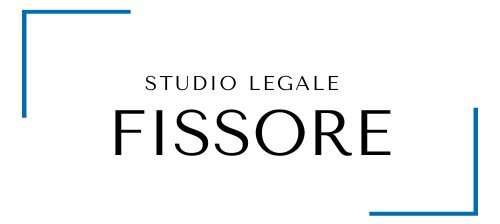Best Restructuring & Insolvency Lawyers in Italy
Share your needs with us, get contacted by law firms.
Free. Takes 2 min.
Or refine your search by selecting a city:
List of the best lawyers in Italy
About Restructuring & Insolvency Law in Italy
Restructuring and insolvency law in Italy governs the processes and rules for businesses and individuals facing financial distress. This area of law provides mechanisms for debtors to reorganize their operations or for creditors to recover funds from insolvent parties. Italian restructuring and insolvency law is designed to balance the interests of debtors and creditors, promote the continuity of viable businesses, and ensure fair treatment for all parties involved. The rules are primarily found in the Italian Bankruptcy Law (Legge Fallimentare), which has undergone significant reforms in recent years to streamline procedures and encourage out-of-court solutions.
Why You May Need a Lawyer
People and companies may seek legal assistance in restructuring and insolvency situations for a variety of reasons. Common scenarios include:
- Your business is unable to pay its debts when due and risks being declared insolvent.
- You wish to negotiate with creditors to restructure existing debt to avoid bankruptcy.
- A creditor has initiated insolvency proceedings against your company or personal assets.
- You are a creditor seeking to recover debts from a financially distressed company or individual.
- You are considering an out-of-court agreement or a judicial procedure to resolve financial difficulties.
- You need to understand your rights and obligations under Italian insolvency law.
- You want to minimize legal risks and personal liability as a company director or shareholder.
- You own or manage a company involved in cross-border insolvency situations.
A specialized lawyer can help you navigate complex procedures, liaise with courts and creditors, and help protect your interests during negotiations or judicial processes.
Local Laws Overview
Italian restructuring and insolvency law has evolved to provide both preventative and remedial measures for distressed debtors. Key aspects include:
- Reform of the Crisis and Insolvency Code (Codice della Crisi d’Impresa): This code, effective since 2022, emphasizes early detection of financial distress and introduces new procedures for business recovery.
- Composition with Creditors (Concordato Preventivo): Allows a business to propose a restructuring plan to its creditors through a court-approved process, avoiding declaration of bankruptcy if successful.
- Judicial Liquidation (Liquidazione Giudiziale): This is the current term for bankruptcy in Italy, where the debtor’s assets are liquidated under court supervision to pay creditors.
- Debt Restructuring Agreements (Accordi di Ristrutturazione): Enables debtors and creditors to negotiate privately or in court, binding only the consenting creditors.
- Procedures for Small Businesses and Individuals: New simplified arrangements for micro-enterprises and natural persons aim to streamline relief from debt.
- Directors’ Responsibilities: Italian law places obligations on directors to preserve liquidity and take action at the first signs of financial trouble, with penalties for wrongful trading.
These laws have been influenced by European Union directives promoting business continuity and creditor rights, ensuring harmonization with other EU insolvency regimes.
Frequently Asked Questions
What is the main difference between restructuring and insolvency in Italy?
Restructuring involves negotiating with creditors to alter payment terms, giving the business a chance to recover, whereas insolvency generally results in judicial liquidation of assets to pay creditors.
Can individuals as well as companies access restructuring proceedings?
Yes. Both businesses and, in certain cases, individuals can use court-supervised or negotiated restructuring procedures to address their financial difficulties.
What are my obligations as a company director if my business is struggling financially?
Directors are required to promptly identify signs of crisis and take appropriate actions, such as seeking professional advice or initiating restructuring procedures to avoid worsening creditor positions.
Can I avoid bankruptcy in Italy?
Yes, if a viable restructuring plan is presented and accepted by creditors, formal bankruptcy may be avoided through compositions with creditors or debt restructuring agreements.
How long do restructuring or insolvency procedures typically take in Italy?
The duration varies based on the complexity of assets, liabilities, and negotiations. Some streamlined procedures for small businesses can be resolved in a matter of months, while judicial liquidation can take years.
Are cross-border insolvencies recognized in Italy?
Yes. Italian law recognizes insolvency proceedings opened in other EU member states and provides for cooperation in cross-border cases according to EU Insolvency Regulation.
What happens to company employees in insolvency proceedings?
Italian law provides protections for employees, including priority status of unpaid wages and access to a guarantee fund for outstanding entitlements.
Will insolvency affect company directors personally?
Directors may be held personally liable if they are found to have mismanaged the company or failed in their legal obligations to act on early signs of distress.
How are creditors paid in insolvency proceedings?
Creditors are paid in a statutory order of priority, with secured creditors and certain employee claims taking precedence over unsecured creditors.
Is it possible to negotiate debt repayment out of court?
Yes, out-of-court settlements and agreements with creditors are encouraged, and Italian law provides for several means to formalize these arrangements.
Additional Resources
For anyone seeking further guidance or legal support, the following resources and organizations may be helpful:
- Ministry of Justice (Ministero della Giustizia) - Provides official guidance and updates on insolvency and restructuring laws.
- Chambers of Commerce (Camere di Commercio) - Offer information services and may facilitate mediation between debtors and creditors.
- Italian Association of Insolvency Practitioners (Associazione Italiana dei Curatori e dei Commissari Giudiziali) - A resource for finding qualified professionals.
- European e-Justice Portal - Offers information on EU cross-border insolvency rules applicable in Italy.
- Local Bar Associations - Can refer you to lawyers specialized in restructuring and insolvency law.
Next Steps
If you are facing financial difficulties or need advice regarding restructuring or insolvency in Italy, it is important to take prompt action. Consider the following steps:
- Gather all relevant financial documents and information about your debts and assets.
- Contact a lawyer specializing in restructuring and insolvency for a confidential consultation.
- Assess your legal obligations and potential liabilities as a director, shareholder, or individual debtor.
- Discuss available options, such as debt restructuring, compositions with creditors, or liquidation.
- If necessary, initiate formal proceedings to protect your assets and reputation.
- Explore opportunities for out-of-court negotiation with creditors to avoid formal insolvency.
- Stay informed and comply with all legal notices and court requirements during the process.
A qualified legal professional can guide you through the process and help you make informed decisions to safeguard your interests. Early legal advice can provide more options and a greater chance of achieving a successful outcome.
Lawzana helps you find the best lawyers and law firms in Italy through a curated and pre-screened list of qualified legal professionals. Our platform offers rankings and detailed profiles of attorneys and law firms, allowing you to compare based on practice areas, including Restructuring & Insolvency, experience, and client feedback.
Each profile includes a description of the firm's areas of practice, client reviews, team members and partners, year of establishment, spoken languages, office locations, contact information, social media presence, and any published articles or resources. Most firms on our platform speak English and are experienced in both local and international legal matters.
Get a quote from top-rated law firms in Italy — quickly, securely, and without unnecessary hassle.
Disclaimer:
The information provided on this page is for general informational purposes only and does not constitute legal advice. While we strive to ensure the accuracy and relevance of the content, legal information may change over time, and interpretations of the law can vary. You should always consult with a qualified legal professional for advice specific to your situation.
We disclaim all liability for actions taken or not taken based on the content of this page. If you believe any information is incorrect or outdated, please contact us, and we will review and update it where appropriate.
Browse restructuring & insolvency law firms by city in Italy
Refine your search by selecting a city.
















